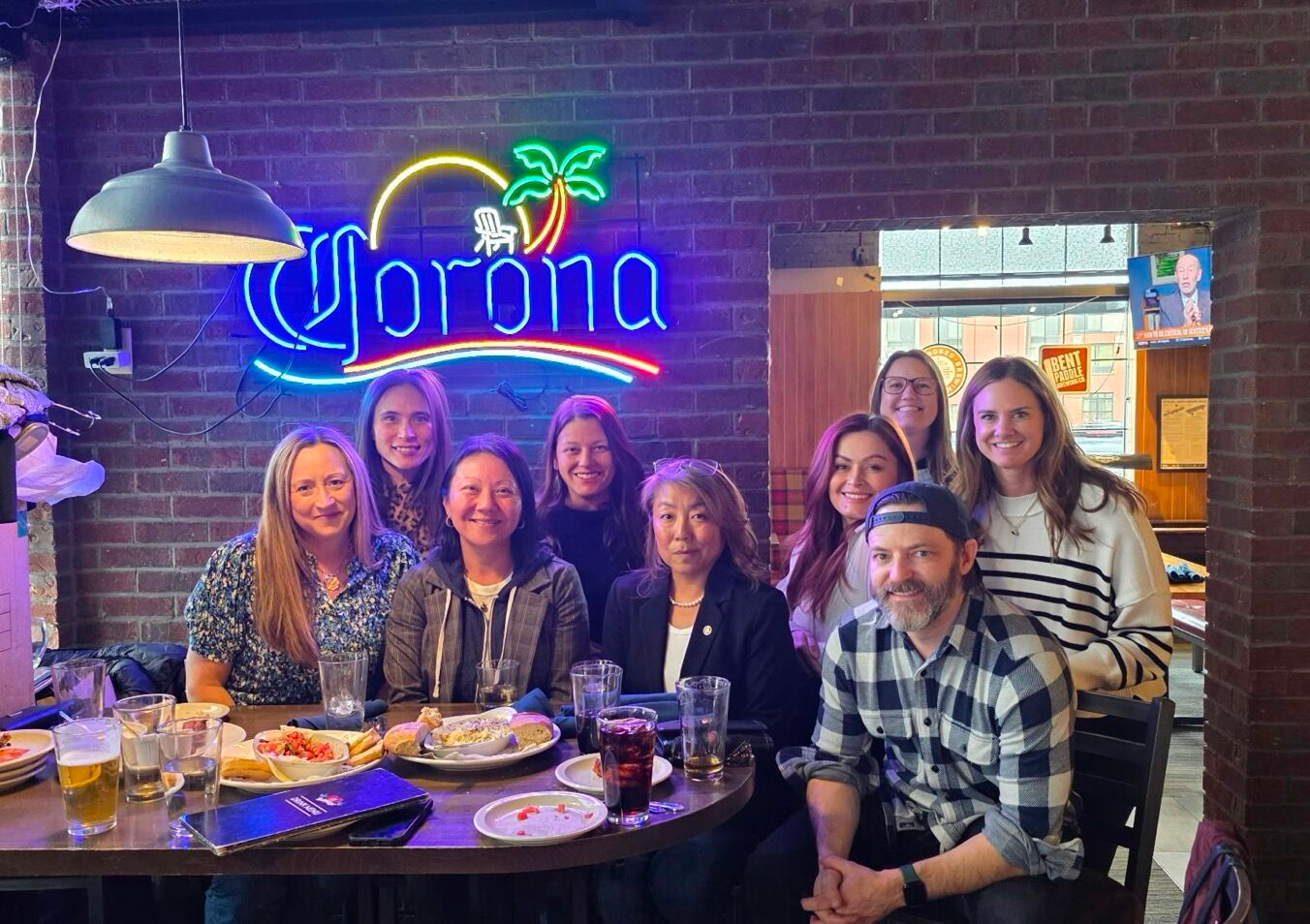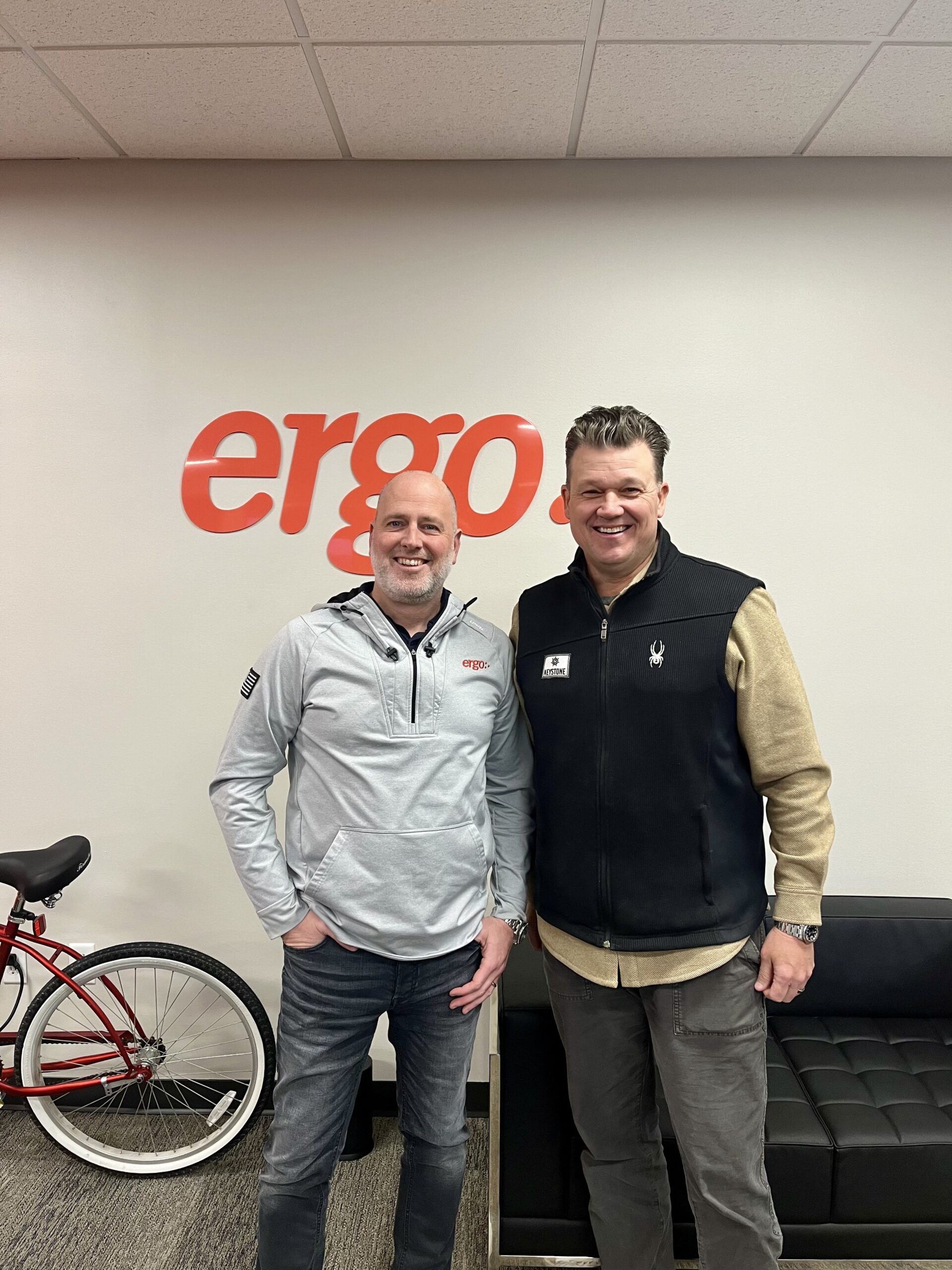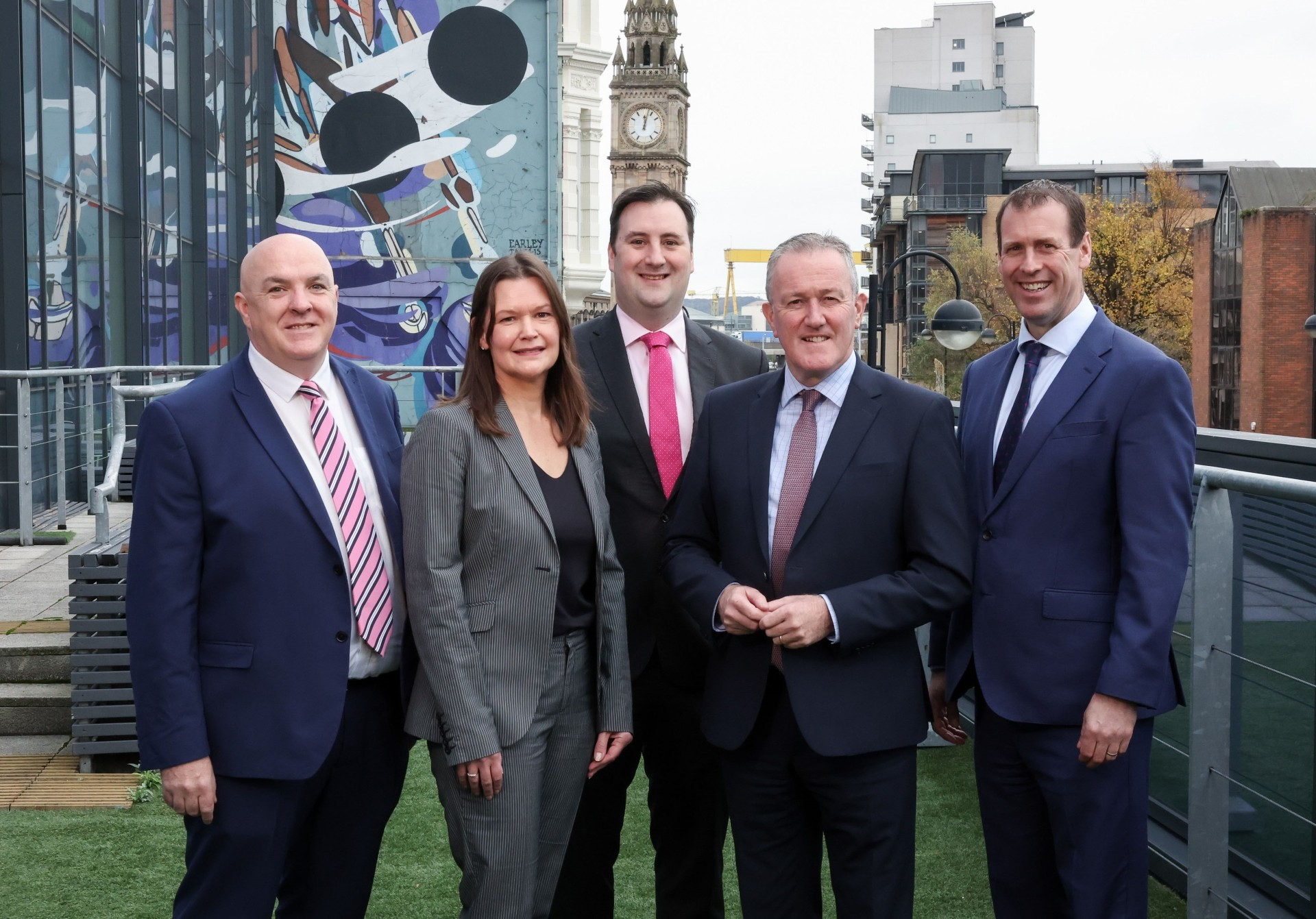Ergo founder John Purdy has €100m milestone on his mind
John Purdy, CEO of Ergo, spoke to Killian Woods from the Sunday Business Post recently, where he explains what brought the company from printer cartridge recycling 26 years ago, to being a leading Irish IT provider who is on track to hit the €100m revenue mark.
When John Purdy finished school in the 1980s, his father Jack was quite ill. However, he was determined to leave his eldest son in a position to continue a long-held family tradition – and in turn provide for the family.
Jack Purdy was a shipwright for Guinness. He was also the eldest son in his family and followed in his own father’s footsteps to ply his trade at St James’s Gate. It was now John’s turn.
In July 1980, the month after John sat his Leaving Cert, Jack told his son there was an apprenticeship waiting for him – he was going to be a sheet metal worker for Guinness. “No, I’m not,” Purdy told his father. That was a very tough situation, John Purdy says as he reflects on how he delivered the news. “This was during a really horrible recession, and I broke that tradition, which caused all kinds of problems. My poor father had three sons and none of us inherited his skills. So I never went to Guinness. I was just so determined that I could never be a sheet metal worker. I knew that wasn’t for me,” he says.
Purdy’s father died the year after he finished school. It meant college wasn’t on the cards: he needed a paying job. After an internship straight out of school, he got an entry-level job in credit control and then customer services before studying marketing at night in Dublin’s College of Marketing, which is now part of Technological University Dublin. During his course, Purdy wanted to do a stint in sales. And to get a real crash course in the art of selling, he wanted to be tasked with something that was a hard sell.
The advice he got at the time was to go into photocopiers. “I ended up working for a company called Sharptext. I actually liked it and was making a lot of money. I was in my early 30s and with my lifelong friend Tim Sheehy – who was 20 years older than me – we decided we wanted to do something for ourselves. So I went home to my wife and said, ‘Here’s what I want to do’.” It wasn’t the sexiest pitch, but he convinced his wife Audrey, nonetheless. Purdy’s business, Ergo, was going to recycle cartridges for printers – and it would be based out of his spare bedroom and Sheehy’s garage. “It was very dirty, very messy – it was just a horrible business. Look, it gave us a start, but we realised after a year that this was not scalable, so we had to move into other aspects,” he says.
Over the past 26 years, to keep the business fresh Ergo has moved from recycling print cartridges into printer maintenance, software development and IT services. It also developed a spinoff banking practice called Fenergo in 2009. In recent years, it acquired the Cork based software licensing business Micromail Limited for €6.9 million and the Dublin IT firm iSite for an undisclosed amount.
In the past five years in particular, Ergo has grown rapidly and is now fast approaching the €100 million revenue per year mark. The most recent accounts showed it expected sales to be in excess of €74 million in the year to March 2019, but they actually came in at around €85 million. Purdy admits the €100 million milestone is on his mind – and it could happen as soon as next year. “Five years ago, that would have been a very aspirational figure, but we’ll either hit €100 million – or just below €100 million – this financial year [ending March 2020] in turnover. The contracts that we’re trying to win are now very significant, six and seven-figure sums.”
The spike in revenue has come after Ergo sold its stake in Fenergo to Insight Partners in August 2015 in a deal worth $75 million. Purdy says he has retained a small stake in the start-up, which recently raised €66 million in funding. He believes the Fenergo sale – and some advice he received during a course in Stanford University – are the main reasons Ergo has grown so quickly in recent years.
“We had a lecture one morning from someone who was a significant shareholder in JetBlue and now had 100 shareholdings in different companies. His attitude was to get your business to a certain size, take a dividend, pay your mortgage, pay your personal debt, make sure there’s a few bob there for your kids go to college – all that kind of stuff – and then go like the clappers.” The exit from Fenergo gave Purdy this nest egg – he dealt with personal debt and paid off his mortgage – and since then his business has grown by 400 percent. He says that, without the sale of the start-up, the rapid growth at Ergo would have been a tougher challenge. He hints that banks would have got in the way of any plans to take a sizeable dividend. “If you want to take money off the table, you have that conversation with any of the pillar banks and their attitude is ‘you can’t do that: that weakens our position’.”
He says this can fuel a feeling among business owners who set up a firm that reaches a critical size that they must sell in order to get any sort of payout. Some owners of rapidly growing Irish companies have been questioned for doing just that in recent years, in particular Sean Mitchell and David Moloney, the founders of chip maker Movidius, who sold their business to Intel for a reported €300 million in 2016. Some commentators in the Irish tech scene felt Mitchell and Moloney could have led their company to be Ireland’s first unicorn – a start-up valued at €1 billion – instead of selling up. But Purdy says the founders were probably left in a position where a sale was the best option.
“I think ambition is a problem, and it is often lacking in Irish companies. But I think funding is a challenge as well. We’re very limited with banks [in Ireland]. If you look at the funding routes, we’ve got some pillar banks and we have a private equity route that suits some organisations and not others. Generally, banks don’t like organisations taking money off the table. “We cannot have banks curtailing the ambition of companies. Maybe we need more competition. We need different ways of funding companies. We hear phrases like ‘We’re backing brave’ and all this kind of stuff from Irish banks. Really? For 20 years I’ve sat in front of banks. I don’t see them as brave.”
Purdy says that start-ups’ access to other possible funding is also restricted in Ireland. He has invested his own cash in several companies and start-ups, but says there is no true incentive for him to do so. “Right now, I’m taking money I’ve paid capital gains tax on and putting it at risk. So minister, why don’t you give me some sort of a tax break so I can take that money I’ve paid in tax and put it into start-ups? “I don’t want to go and live in Malta. I don’t want to go to Portugal unless I’m going on my holidays. I want to sleep in the same house as the rest of my family. I don’t want to spend a certain number of days a year living offshore so I can save money on tax. I want to pay tax, but I want to pay tax in an efficient way.”
To date, Purdy has invested his cash in the pharma firm Amryt, the Cork-based medicine company Solvotrin Therapeutics and the Dublin start-up Vromo, a food delivery software business. He says this dabbling in angel investments is part of a plan to map out his life after Ergo – he can’t quite see himself retiring.
“I was 57 a couple of weeks ago. How much longer will I do this role with Ergo at this level and what am I going to do post that? For the next number of years I will be here, but I’d like to do other things and this was my way of teaching myself about what other things are out there.” But Purdy doesn’t plan to take his eyes off the day-to-day running of Ergo in the meantime – or the big-picture issues facing his business. The EY Entrepreneur of the Year 2014 winner has picked up lobbying duties as part of his role as an alumni of the competition. He says he wants to change the perception among state agencies that indigenous firms are “a poor relation” of the large multinationals in terms of tax treatment.
“If Trump had his way, their money would be repatriated back to the US, but the indigenous businesses are here for long term,” he says. “All those medium-sized firms, small companies, family businesses: they are here to stay.They’re here to ride through recession, ride through Brexit. They’re screaming for equality.” The EY awards subcommittee on which Purdy sits also wants to focus specifically on taxation and entrepreneurship. “In this country, we have a lifetime relief of €1 million, but an hour from here in Newry that’s £10 million. Do I believe that Ireland could afford €10 million? No. But I think we need to be closer to it. We are beginning to see start-ups, particularly led by young people, saying “I don’t need to do this in Dublin. I can go do this in London or in Newry.”
He adds that a positive bias towards developing enterprise outside Dublin is also needed. Ergo is currently feeling the heat of the Dublin market – premium office space has become expensive due to a shortage of supply, and retention of workers is an issue faced by most businesses. “Dublin is bursting. Quite frankly, we could not afford the real estate for the 430 people that are employed in this company, and we’ll never be able to afford that.
We have to give people the tools, the ability, the capability and the trust to work in a way that makes sense for them. “So if that means working from home, or working from a customer site, well then let’s do that. It’sm about where people want to live now. If it works for our customer, and it works for employees, we’re happy with that. We’re happy with that flexibility.”
The future of work and better benefits for entrepreneurs are the big-picture issues Purdy has decided to focus on. But one he can’t avoid is that succession plan for when he eventually steps away from Ergo. This project is still at an early phase, but Purdy is certain about one thing: his sons are not in the frame for the job.
“This is not a family business. We’re very specific about this. I’ve got two sons; one is 18 and the other 24. Both of them have been told that they would get a summer job here while they’re in school or college, but that they’ll never work here full time.“Why? There are guys working really hard out there in the office and have been for a number of years. They don’t want to see daddy’s son coming in and feel he is getting preferential treatment. So we’ve told Connor and Kian, ‘If you want to be an entrepreneur, go be an entrepreneur. We’ll help you be an entrepreneur, but not in this business.”






